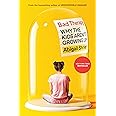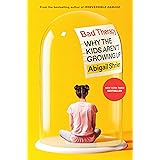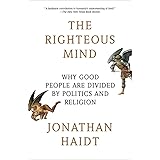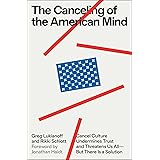
Enjoy fast, free delivery, exclusive deals, and award-winning movies & TV shows with Prime
Try Prime and start saving today with fast, free delivery
Amazon Prime includes:
Fast, FREE Delivery is available to Prime members. To join, select "Try Amazon Prime and start saving today with Fast, FREE Delivery" below the Add to Cart button.
Amazon Prime members enjoy:- Cardmembers earn 5% Back at Amazon.com with a Prime Credit Card.
- Unlimited Free Two-Day Delivery
- Streaming of thousands of movies and TV shows with limited ads on Prime Video.
- A Kindle book to borrow for free each month - with no due dates
- Listen to over 2 million songs and hundreds of playlists
- Unlimited photo storage with anywhere access
Important: Your credit card will NOT be charged when you start your free trial or if you cancel during the trial period. If you're happy with Amazon Prime, do nothing. At the end of the free trial, your membership will automatically upgrade to a monthly membership.





Download the free Kindle app and start reading Kindle books instantly on your smartphone, tablet, or computer - no Kindle device required.
Read instantly on your browser with Kindle for Web.
Using your mobile phone camera - scan the code below and download the Kindle app.

Image Unavailable
Color:
-

-
-
- To view this video download Flash Player
 Audible sample Sample
Audible sample Sample



Follow the author
OK
The Anxious Generation: How the Great Rewiring of Childhood Is Causing an Epidemic of Mental Illness Hardcover – March 26, 2024

Explore your book, then jump right back to where you left off with Page Flip.
View high quality images that let you zoom in to take a closer look.
Enjoy features only possible in digital – start reading right away, carry your library with you, adjust the font, create shareable notes and highlights, and more.
Discover additional details about the events, people, and places in your book, with Wikipedia integration.
Purchase options and add-ons
From New York Times bestselling coauthor of The Coddling of the American Mind, an essential investigation into the collapse of youth mental health—and a plan for a healthier, freer childhood.
“Erudite, engaging, combative, crusading.” —New York Times Book Review
“Words that chill the parental heart… thanks to Mr. Haidt, we can glimpse the true horror of what happened not only in the U.S. but also elsewhere in the English-speaking world… lucid, memorable… galvanizing.” —Wall Street Journal
"[An] important new book...The shift in kids’ energy and attention from the physical world to the virtual one, Haidt shows, has been catastrophic, especially for girls." —Michelle Goldberg, The New York Times
After more than a decade of stability or improvement, the mental health of adolescents plunged in the early 2010s. Rates of depression, anxiety, self-harm, and suicide rose sharply, more than doubling on many measures. Why?
In The Anxious Generation, social psychologist Jonathan Haidt lays out the facts about the epidemic of teen mental illness that hit many countries at the same time. He then investigates the nature of childhood, including why children need play and independent exploration to mature into competent, thriving adults. Haidt shows how the “play-based childhood” began to decline in the 1980s, and how it was finally wiped out by the arrival of the “phone-based childhood” in the early 2010s. He presents more than a dozen mechanisms by which this “great rewiring of childhood” has interfered with children’s social and neurological development, covering everything from sleep deprivation to attention fragmentation, addiction, loneliness, social contagion, social comparison, and perfectionism. He explains why social media damages girls more than boys and why boys have been withdrawing from the real world into the virtual world, with disastrous consequences for themselves, their families, and their societies.
Most important, Haidt issues a clear call to action. He diagnoses the “collective action problems” that trap us, and then proposes four simple rules that might set us free. He describes steps that parents, teachers, schools, tech companies, and governments can take to end the epidemic of mental illness and restore a more humane childhood.
Haidt has spent his career speaking truth backed by data in the most difficult landscapes—communities polarized by politics and religion, campuses battling culture wars, and now the public health emergency faced by Gen Z. We cannot afford to ignore his findings about protecting our children—and ourselves—from the psychological damage of a phone-based life.
-
Print length400 pages
-
LanguageEnglish
-
PublisherPenguin Press
-
Publication dateMarch 26, 2024
-
Dimensions6.45 x 1.26 x 9.53 inches
-
ISBN-100593655036
-
ISBN-13978-0593655030
The Amazon Book Review
Book recommendations, author interviews, editors' picks, and more. Read it now
Frequently bought together

Similar items that may ship from close to you
Editorial Reviews
Review
“Words that chill the parental heart… thanks to Mr. Haidt, we can glimpse the true horror of what happened not only in the U.S. but also elsewhere in the English-speaking world… lucid, memorable… galvanizing.” —Meghan Cox Gurdon, Wall Street Journal
“I found myself nodding along in agreement … benefits from… years of research on how smartphones and social media dice the nerves and tamp the spirits of young people … not just reasonable but irrefutably necessary.” —Jessica Winter, New Yorker
“Boundlessly wise… important and engrossing.” —Frank Bruni, New York Times Opinion
“All the suggestions sound sensible. Some even sound fun . . . Deals seriously with counter-arguments and gaps in the evidence.” —The Economist
“Can be quite wonderful… beautifully grounds his critique in Buddhist, Taoist and Christian thought traditions… His common-sense recommendations for actions...are excellent.” —Judith Warner, The Washington Post
"[An] important new book...The shift in kids’ energy and attention from the physical world to the virtual one, Haidt shows, has been catastrophic, especially for girls." —Michelle Goldberg, The New York Times
“Informative and compelling…Haidt wants children to spend more time appreciating nature, playing with friends, riding and falling off their bikes, and doing age-appropriate chores.”—Glenn C. Altschuler, Psychology Today
"An urgent and essential read, and it ought to become a foundational text for the growing movement to keep smartphones out of schools, and young children off social media" —Sophie McBain, The Guardian (UK)
“Compelling, readable—and incredibly chilling . . . remarkably persuasive.” —Lucy Denyer, Telegraph (UK)
"A persuasive and rousing argument"—Anna Davis, Evening Standard (UK)
“If this important book rings enough alarms (wait, or is that just my phone pinging?) to make politicians impose a genuine social media ban on children, I believe most parents would be happy and most teenagers happier.” —Helen Rumbelow, The Times (UK, Book of the Week)
"Haidt sets out inarguable evidence that smartphones are fuelling an anxiety epidemic among young people—and big tech must do more to reverse it…an extremely important and compelling read that is recommended not only to parents but to anyone who has felt increasingly pressurised by technology…I can’t recommend this book highly enough; everyone should read it. It is a game-changer for society." —Stella O'Malley, Irish Independent
“Jonathan Haidt is a modern-day prophet, disguised as a psychologist. In this book, he’s back to warn us of the dangers of a phone-based childhood. He points the way forward to a brighter, stronger future for us all.” —Susan Cain, #1 New York Times bestselling author of Bittersweet and Quiet
“An urgent and provocative read on why so many kids are not okay—and how to course correct. Jonathan Haidt makes a powerful case that the shift from play-based to phone-based childhoods is wreaking havoc on mental health and social development. Even if you’re not ready to ban smartphones until high school, this book will challenge you to rethink how we nurture the potential in our kids and prepare them for the world.” —Adam Grant, #1 New York Times bestselling author of Hidden Potential and Think Again, and host of the TED podcast Re:Thinking
“This is a crucial read for parents of children of elementary school age and beyond, who face the rapidly changing landscape of childhood. Haidt lays out problems but also solutions for making a better digital life with kids.” —Emily Oster, New York Times bestselling author of Expecting Better
“Every single parent needs to stop what they are doing and read this book immediately. Jonathan Haidt is the most important psychologist in the world today, and this is the most important book on the topic that’s reshaping your child’s life right now.” —Johann Hari, author of Stolen Focus
“This book poses a challenge that will determine the shape of the rest of the century. Jonathan Haidt shows us how we’ve arrived at this point of crisis with technology and the next generation. This book does not merely stand athwart the iPhone yelling ‘Stop!’ Haidt provides research-tested yet practical counsel for parents, communities, houses of worship, and governments about how things could be different. I plan to give this book to as many people as I can, while praying that we all have the wisdom to ponder and then to act.” —Russell Moore, editor in chief of Christianity Today
About the Author
Excerpt. © Reprinted by permission. All rights reserved.
A Tidal Wave
Chapter 1
THE SURGE OF SUFFERING
When I talk with parents of adolescents, the conversation often turns to smartphones, social media, and video games. The stories parents tell me tend to fall into a few common patterns. One is the “constant conflict” story: Parents try to lay down rules and enforce limits, but there are just so many devices, so many arguments about why a rule needs to be relaxed, and so many ways around the rules, that family life has come to be dominated by disagreements about technology. Maintaining family rituals and basic human connections can feel like resisting an ever-risingtide, one that engulfs parents as well as children.
For most of the parents I talk to, their stories don’t center on any diagnosed mental illness. Instead, there is an underlying worry that something unnatural is going on, and that their children are missing something—really, almost everything—as their online hours accumulate. But sometimes the stories parents tell me are darker. Parents feel that they have lost their child. A mother I spoke with in Boston told me about the efforts she and her husband had made to keep their fourteen-year-old daughter, Emily, away from Instagram. They could see the damaging effects it was having on her. To curb her access, they tried various programs to monitor and limit the apps on her phone. However, family life devolved into a constant struggle in which Emily eventually found ways around the restrictions. In one distressing episode, she got into her mother’s phone, disabled the monitoring software, and threatened to kill herself if her parents reinstalled it. Her mother told me:
It feels like the only way to remove social media and the smartphone from her life is to move to a deserted island. She attended summer camp for six weeks each summer where no phones were permitted—no electronics at all. Whenever we picked her up from camp she was her normal self. But as soon as she started using her phone again it was back to the same agitation and glumness. Last year I took her phone away for two months and gave her a flip phone and she returned to her normal self.
When I hear such stories about boys, they usually involve video games (and sometimes pornography) rather than social media, particularly when a boy makes the transition from being a casual gamer to a heavy gamer. I met a carpenter who told me about his 14 year-old son, James, who has mild autism. James had been making good progress in school before COVID arrived, and also in the martial art of judo. But once schools were shut down, when James was eleven, his parents bought him a PlayStation, because they had to find something for him to do at home.
At first it improved James’s life—he really enjoyed the games and social connections. But as he started playing Fortnite for lengthening periods of time, his behavior began to change. “That’s when all the depression, anger, and laziness came out. That’s when he started snapping at us,” the father told me. To address James’s sudden change in behavior, he and his wife took all of his electronics away. When they did this, James showed withdrawal symptoms, including irritability and aggressiveness, and he refused to come out of his room. Although the intensity of his symptoms lessened after a few days, his parents still felt trapped: “We tried to limit his use, but he doesn’t have any friends, other than those he communicates with online, so how much can we cut him off?”
No matter the pattern or severity of their story, what is common among parents is the feeling that they are trapped and powerless. Most parents don’t want their children to have a phone-based childhood, but somehow the world has reconfigured itself so that any parent who resists is condemning their children to social isolation.
In the rest of this chapter, I’m going to show you evidence that something big is happening, something changed in the lives of young people in the early 2010s that made their mental health plunge. But before we immerse ourselves in the data, I wanted to share with you the voices of parents who feel that their children were in some sense swept away, and who are now struggling to get them back.
Product details
- Publisher : Penguin Press (March 26, 2024)
- Language : English
- Hardcover : 400 pages
- ISBN-10 : 0593655036
- ISBN-13 : 978-0593655030
- Item Weight : 1.36 pounds
- Dimensions : 6.45 x 1.26 x 9.53 inches
- Best Sellers Rank: #7 in Books (See Top 100 in Books)
- #2 in Parenting Teenagers (Books)
- #2 in Mental Health (Books)
- #2 in Stress Management Self-Help
- Customer Reviews:
Videos
-
Videos for this product

1:37
Click to play video

My Point of View on the Book The Anxious Generation
Andre Ballin

-
Videos for this product

0:48
Click to play video

Validation for some parents: Wake-up call for all others
KJ

-
Videos for this product

1:12
Click to play video

The Anxious Generation REVIEW (Sneak Peek Inside!)
Helena Song

-
Videos for this product

0:09
Click to play video

Customer Review: Another home run! Sans evolution
Raquel Ochoa

About the author

Jonathan Haidt is the Thomas Cooley Professor of Ethical Leadership at New York University's Stern School of Business. He received his Ph.D. in social psychology from the University of Pennsylvania in 1992 and then did post-doctoral research at the University of Chicago and in Orissa, India. He taught at the University of Virginia for 16 years before moving to NYU-Stern in 2011. He was named one of the "top global thinkers" by Foreign Policy magazine, and one of the "top world thinkers" by Prospect magazine.
His research focuses on morality - its emotional foundations, cultural variations, and developmental course. He began his career studying the negative moral emotions, such as disgust, shame, and vengeance, but then moved on to the understudied positive moral emotions, such as admiration, awe, and moral elevation. He is the co-developer of Moral Foundations theory, and of the research site YourMorals.org. He is a co-founder of HeterodoxAcademy.org, which advocates for viewpoint diversity in higher education. He uses his research to help people understand and respect the moral motives of their enemies (see CivilPolitics.org, and see his TED talks). He is the author of The Happiness Hypothesis: Finding Modern Truth in Ancient Wisdom; The Righteous Mind: Why Good People are Divided by Politics and Religion; and (with Greg Lukianoff) The Coddling of the American Mind: How good intentions and bad ideas are setting a generation up for failure. For more information see www.JonathanHaidt.com.
Customer reviews
Customer Reviews, including Product Star Ratings help customers to learn more about the product and decide whether it is the right product for them.
To calculate the overall star rating and percentage breakdown by star, we don’t use a simple average. Instead, our system considers things like how recent a review is and if the reviewer bought the item on Amazon. It also analyzed reviews to verify trustworthiness.
Learn more how customers reviews work on AmazonReviews with images
-
Top reviews
Top reviews from the United States
There was a problem filtering reviews right now. Please try again later.
I suggest this book as required reading for any parent with a kid under the age of 18 and specifically new parents. Most parents (and teachers) know that things have gone awry with phones in kids' hands all the time instead of interacting with peers, parents, and anyone around them, and the author showed how things took a turn for the worse when smart phones and social media took over our kid's attention, and their play-based life diminished.
Haidt discusses two trends happening right now: overprotection in the real world and under-protection in the virtual world, which is leading to an anxious generation of those born after 1995. Girls are particularly experiencing more mental health problems of anxiety, depression, and self-harm, and social media is largely to blame. He also discusses boys, but I have girls and so read that part more closely.
The author suggests four foundational reforms:
1. No smart phones before high school
2. No social media before 16
3. Phone-free schools
4. Far more unsupervised play and childhood independence
The bottom line is that kids need to get off their devices and regain control of their minds.
As a parent, we can start to make corrections and help our kids be less anxious and curb addiction. The material is well-researched and presented and deserves serious attention.
An apt analogy to smoking is drawn, given social media apps are - by design - addicting and marketed to minors. Modern societal norms don't allow pre-teens to buy tobacco, alcohol or enter casinos so why are we allowing them access to "digital fentanyl"? Unfortunately, in a world of "move fast and break things" techno-optimism, what has been broken is teenage mental health. Haidt correctly assesses that this is a collective action problem and offers four foundation recommendations:
1) More unsupervised play and childhood independence;
2) No smartphones before high school;
3) No social media before 16;
4) Phone free schools;
Regulatory frameworks and societal norms often lag Silicon Valley's bleeding-edge speed of development, but the damage being wrought here - and painstakingly documented by Haidt - is becoming visible enough that this book could catalyze real, positive and lasting change. Gift a copy to anyone with younger children or local educators - spread the word and help solve the collective action problem.
Final note: All of Haidt's books are highly recommended, it is just an unfortunate reflection on our current state of affairs that the arc of his publishing gamut runs chronologically from Happiness to Anxiety instead of the reverse order.
Reviewed in the United States on March 26, 2024
An apt analogy to smoking is drawn, given social media apps are - by design - addicting and marketed to minors. Modern societal norms don't allow pre-teens to buy tobacco, alcohol or enter casinos so why are we allowing them access to "digital fentanyl"? Unfortunately, in a world of "move fast and break things" techno-optimism, what has been broken is teenage mental health. Haidt correctly assesses that this is a collective action problem and offers four foundation recommendations:
1) More unsupervised play and childhood independence;
2) No smartphones before high school;
3) No social media before 16;
4) Phone free schools;
Regulatory frameworks and societal norms often lag Silicon Valley's bleeding-edge speed of development, but the damage being wrought here - and painstakingly documented by Haidt - is becoming visible enough that this book could catalyze real, positive and lasting change. Gift a copy to anyone with younger children or local educators - spread the word and help solve the collective action problem.
Final note: All of Haidt's books are highly recommended, it is just an unfortunate reflection on our current state of affairs that the arc of his publishing gamut runs chronologically from Happiness to Anxiety instead of the reverse order.

The research is spot on, the message is critically important (though I would say, I don't know that this message is limited to teens. I think Cal Newport's Digital Minimalism book is in order for adults too. The 24 hr news cycle is making us anxious too!) I digress. I love what he has to say about raising children and I have implemented a lot of these ideas with my four children already (disclaimer: Safety Minimalism gets the cops called on you for just letting your children play outside - at least near the suburbs of NYC where I live - but the confidence is a worthy trade off).
The only problem is evolution can't support these claims or sustain them. Evolution is a western-centric limited worldview that can only be described as a process of chaos and chance that has no particular purpose or meaning guiding it. In one of the photos of my review I addressed this when Haidt refers to hunter-gatherers to explain how important play is. The issue is that if evolution is "guiding" us, we can just evolve and adjust again to respond to the deathly threat of the digital revolution. There is no objective, absolute standard that says we must go back to our primitive ways, in fact- for whatever reason "evolution" got rid of play-based childhood and going back could be considered retrograde. Unless people were made with some purpose and design, we have no reason to go on this mission to save childhood. It will be selected out just like all other traits (how do we assume in evolution which traits are the good and which are the bad btw?). Evolution is a worldview that brings about change through death. We can't put all the digital issues of the age back in the box unless we are bold enough to claim that there is an objective standard of truth and morality.
Chapter 8 offers a view that some level of spirituality can "save us." I agree in a sense, but it can't be empty and made up or promulgated as an opiate of the people. God is not to be taken so lightly as our bandaid cure. We can have all of the excellent ideas of this book, without using the made up excuse that we are just mechanical processes to suppress the truth that we were created and designed by God to be saved from our sins only through Jesus' payment for them in his death and the promise of His resurrection. Lots of the world believes this, which is why I say evolution is very western hegemonic and atheistic in its nature to give us a good excuse to getting out of accountability from God.
All that said, I still really love this book and think it is very urgent and should be extended to all adults. But if we really are an unguided, mechanistic bunch of atoms bumping into one another, it really doesn't matter at all that the kids are not alright. They'll adjust. They'll "evolve." God help us.
Reviewed in the United States on March 31, 2024
The research is spot on, the message is critically important (though I would say, I don't know that this message is limited to teens. I think Cal Newport's Digital Minimalism book is in order for adults too. The 24 hr news cycle is making us anxious too!) I digress. I love what he has to say about raising children and I have implemented a lot of these ideas with my four children already (disclaimer: Safety Minimalism gets the cops called on you for just letting your children play outside - at least near the suburbs of NYC where I live - but the confidence is a worthy trade off).
The only problem is evolution can't support these claims or sustain them. Evolution is a western-centric limited worldview that can only be described as a process of chaos and chance that has no particular purpose or meaning guiding it. In one of the photos of my review I addressed this when Haidt refers to hunter-gatherers to explain how important play is. The issue is that if evolution is "guiding" us, we can just evolve and adjust again to respond to the deathly threat of the digital revolution. There is no objective, absolute standard that says we must go back to our primitive ways, in fact- for whatever reason "evolution" got rid of play-based childhood and going back could be considered retrograde. Unless people were made with some purpose and design, we have no reason to go on this mission to save childhood. It will be selected out just like all other traits (how do we assume in evolution which traits are the good and which are the bad btw?). Evolution is a worldview that brings about change through death. We can't put all the digital issues of the age back in the box unless we are bold enough to claim that there is an objective standard of truth and morality.
Chapter 8 offers a view that some level of spirituality can "save us." I agree in a sense, but it can't be empty and made up or promulgated as an opiate of the people. God is not to be taken so lightly as our bandaid cure. We can have all of the excellent ideas of this book, without using the made up excuse that we are just mechanical processes to suppress the truth that we were created and designed by God to be saved from our sins only through Jesus' payment for them in his death and the promise of His resurrection. Lots of the world believes this, which is why I say evolution is very western hegemonic and atheistic in its nature to give us a good excuse to getting out of accountability from God.
All that said, I still really love this book and think it is very urgent and should be extended to all adults. But if we really are an unguided, mechanistic bunch of atoms bumping into one another, it really doesn't matter at all that the kids are not alright. They'll adjust. They'll "evolve." God help us.




Top reviews from other countries
Haidt is a shining example of someone living out the virtues of Enlightenment and should be an example for all of us. Great, important book!
This is an important book.
If you are reading reviews to decide whether to buy the book PLEASE buy it & read it straight away - I’m sure that you’ll also want to share it, talk to parents & schools - - it is a topic that’s too important to ignore.
On a professional level, having been a University Lecturer for more than 20yrs and witnessed first hand the rapid decline in mental health of 1st year students over the last 10yrs, I was already drawn to the title of the book.
On a personal level, with grandchildren ranging from 16yrs to 15months I feel very convinced and concerned by the evidence presented here, about the harms of allowing children smartphones too early in life. I also feel compelled to act because the suggestions for what we can do, now, seem so doable - easy actually, if we all act together.
A must read
Trotzdem bietet das Buch durchaus interessante Einblicke, vor allem für Leser, die sich bisher wenig mit dem Thema auseinandergesetzt haben. Für diese Zielgruppe kann ich das Buch empfehlen, da es eine gute Einführung in die Herausforderungen bietet, denen sich Jugendliche heute gegenübersehen. Wer jedoch schon Vorkenntnisse hat oder tiefgründigere, neue Perspektiven sucht, wird hier möglicherweise nicht fündig.
Kurz gesagt, „The Anxious Generation“ ist kein revolutionäres Werk, das die Diskussion um Jugend und Social Media neu beleuchtet, sondern eher eine solide Basis für Einsteiger in dieses komplexe Thema.








































